Reflections: Researching Global China Conference by REDEFINE
Yuen Gu, PhD Student, University of Bath
BLOG
From February 25th to 26th, 2025, I had the exciting opportunity to attend my first academic conference (Researching Global China - Innovation and Challenges) as a PhD student, presenting my working paper. It was both a nerve-wracking and rewarding experience. The conference gathered scholars from across the Global South and North, all engaged in research on Global China - with thirteen panel themes, the event facilitated vibrant discussions and intellectual exchanges.
Our team participated in the first afternoon session on the opening day: Building Datasets. The session opened with an insightful presentation by Matthew Rochat on A New Index of Chinese Economic Engagement in Africa. Following this, my team members, Dr. Yitong Ye and Ciara O’Brien, shared their progress on SGAIN’s China’s Global Environmental Leadership Database (CGEL), demonstrating the collaborative spirit of our research group. After this, it was my turn to present my study on China’s South-South climate cooperation database and allocation preferences. As it was my first time speaking at an academic conference, I tried to appear confident, though I struggled to maintain direct eye contact with the audience. I had expected a flurry of questions during the Q&A, but most were directed at the first speaker, while Yitong, Ciara, and I received mostly constructive comments. Once my presentation was over, I was relieved and eager to engage with the remaining sessions, which covered topics such as Survey Mixed Methods, Discourse Analysis, Ethics and Inner-Subjectivity, and Creative Methods.
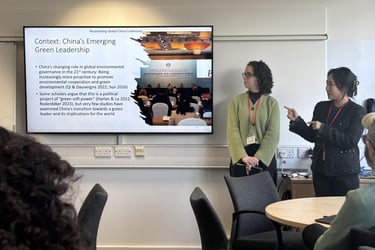

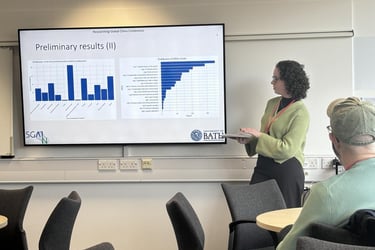

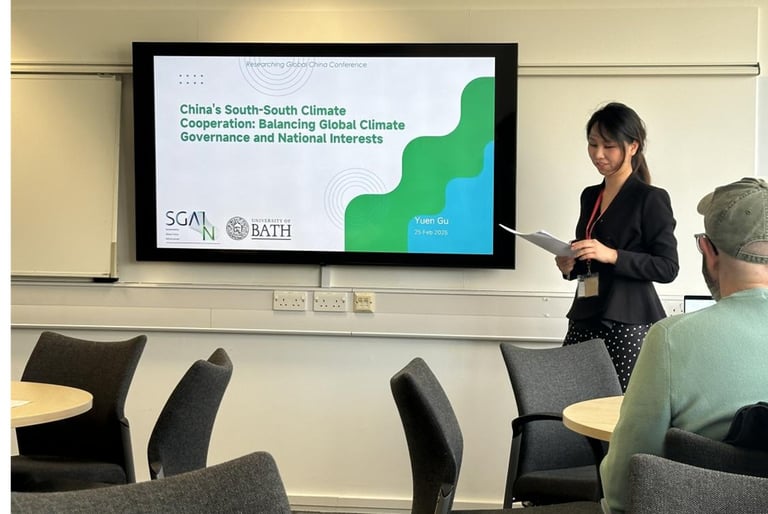

Before this conference, I had not deeply considered the broader implications of ‘Global China’. So far in my PhD, my research has largely been focused on my specific topic of interest, without extensive reflection on its theoretical context. This may be due to the fact that in China, the term ‘Global China’ does not have a direct equivalent; instead, discussions typically revolve around the country's going out strategy—where it goes, what it does, and whether it succeeds.
After listening to multiple presentations across the conference, however, I began critically reflecting on what Global China truly entails. From my observations, discussions at this conference largely revolved around two central themes: how the Global North perceives China and what China is doing in the Global South. Given the strong presence of African scholars and experts on Africa in this conference, the debate over whether Global China represents genuine South-South co-operation, or a form of neo-colonialism was particularly pronounced. This debate connected directly to the keynote speech on the first day by Dr. Ching Kwan Lee, whose analysis of Chinese capitalism triggered strong reactions, particularly from Global South scholars.
In contrast, the second keynote speech by Dr. Julie Klinger took a broader perspective, exploring China’s role in global mineral and infrastructure supply chains. She emphasized that Global China researchers must strive for objective analysis, even as different political actors in different countries may expect research to support particular narratives.
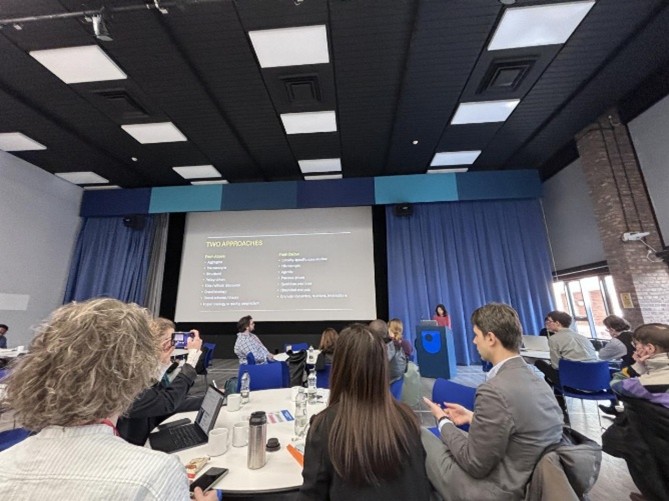

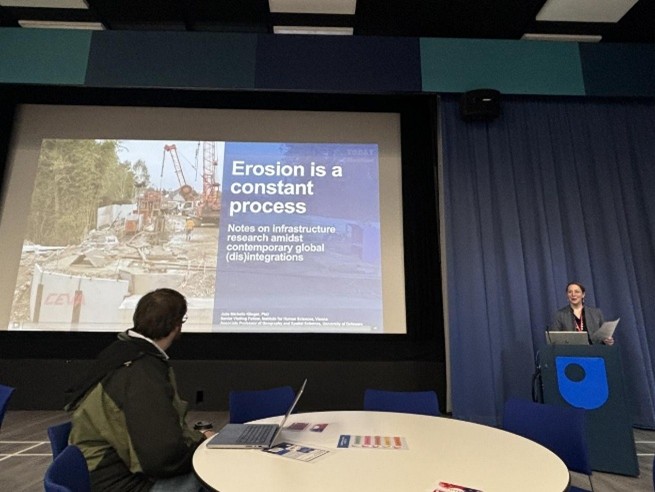

The contrasting perspectives of the keynote speakers led me to question: Why is Global China a distinct research theme, while there is no equivalent Global [Other Country]? China has been a key participant in global affairs for centuries—why has Global China only recently become a widely discussed research topic? What has changed? These questions ultimately tie back to China’s growing influence. Over the past two decades, China’s expanding global presence has sparked a range of reactions—some view it with suspicion, fear, or hostility, while others welcome, support, or seek collaboration. These varied attitudes likely shape how different scholars approach Global China. This realization prompted me to reflect more critically on my own ontological and epistemological position in this field.
Beyond the academic discussions, the conference also featured an enjoyable social component. In addition to the usual post-panel networking at the pub, an unexpected highlight was a post-dinner karaoke session. Scholars from diverse backgrounds came together, drinks in hand, singing and dancing with enthusiasm. The energy and excitement in the room suggested that musical performances sometimes receive more sustained applause than academic presentations!
Overall, I am deeply grateful to the REDEFINE team at Open University for organizing such a fantastic conference, which brought together scholars for rich discussions and critical reflections. I also appreciate all the researchers who contributed to making the event both engaging and intellectually stimulating. For me, this conference was a valuable opportunity to deepen my understanding of my field and explore perspectives I had not previously considered. As an early-career researcher, the experience was truly invaluable. Moving forward, research on Global China will undoubtedly continue to evolve, and I look forward to seeing more theoretical contributions emerging from the Global South.
